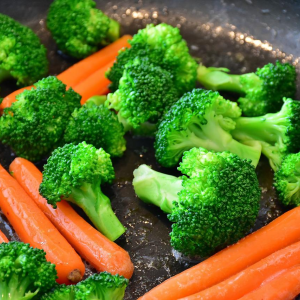
This paper models the impacts of a “degrowth” approach to reducing the environmental impacts of the global food system. It finds that reducing and redistributing income, alone, leads to only limited climate mitigation from food systems, because the shift towards unsustainable diets occurs at low income levels. Instead, a “sustainable transformation” scenario (incorporating income redistribution, and “efficiency-based” carbon tax, a shift towards the EAT-Lancet planetary health diet, and reduced food waste) is able to reach net zero greenhouse gas emissions for the food system by 2100.
Abstract
Degrowth proponents advocate reducing ecologically destructive forms of production and resource throughput in wealthy economies to achieve environmental goals, while transforming production to focus on human well-being. Here we present a quantitative model to test degrowth principles in the food and land system. Our results confirm that reducing and redistributing income alone, within current development paradigms, leads to limited greenhouse gas (GHG) emission mitigation from agriculture and land-use change, as the nutrition transition towards unsustainable diets already occurs at relatively low income levels. Instead, we show that a structural, qualitative food system transformation can achieve a steady-state food system economy that is net GHG-neutral by 2100 while improving nutritional outcomes. This sustainable transformation reduces material throughput via a convergence towards a needs-based food system, is enabled by a more equitable income distribution and includes efficient resource allocation through the pricing of GHG emissions as a complementary strategy. It thereby integrates degrowth and efficiency perspectives.
Reference
Bodirsky, B.L., Chen, D.M.C., Weindl, I., Soergel, B., Beier, F., Molina Bacca, E.J., Gaupp, F., Popp, A. and Lotze-Campen, H., 2022. Integrating degrowth and efficiency perspectives enables an emission-neutral food system by 2100. Nature Food, pp.1-8.
Read the full paper here or here (PDF link). See also the TABLE explainer What is environmental efficiency? And is it sustainable?












Post a new comment »